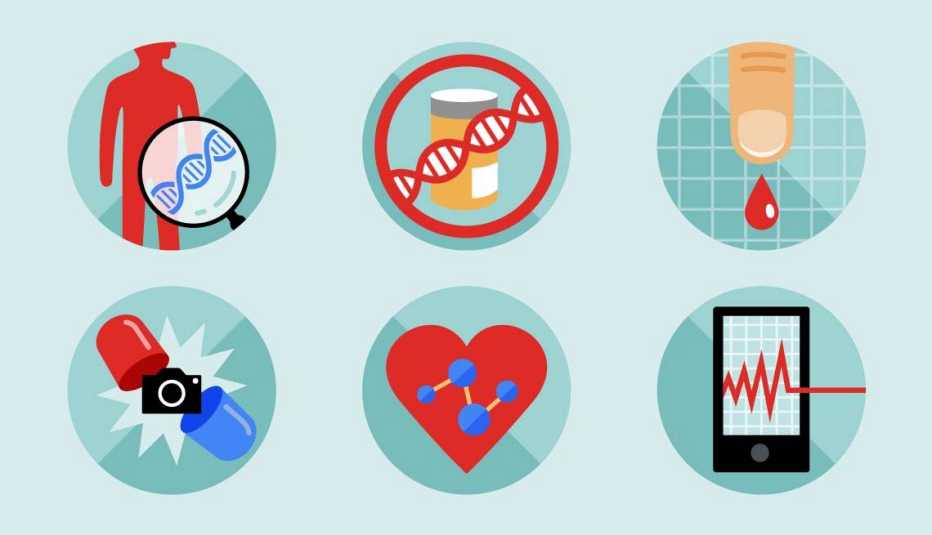AARP Hearing Center


The latest generation of tests can identify who's at risk for certain diseases, as well as determine the best treatment. Here are six game-changers backed by real science.
1. Less-guess prostate test
Men diagnosed with prostate cancer have a tough choice among a range of options: from surgical removal of the prostate — difficulty with urination and impotence can be side effects — to watchful waiting. The Oncotype DX prostate cancer test is making the decision easier. By analyzing genetic information in a biopsy, the test distinguishes between slow-growing tumors that warrant regular monitoring and faster-growing tumors that demand immediate treatment. "For too long, we've overtreated prostate cancer," says Michael Roizen, M.D., chief wellness officer at the Cleveland Clinic. "This test allows us to avoid aggressive treatment when it's not needed and save lives when it is."
2. Meds and genes
Medications affect people in different ways. "By analyzing each person's genetic code, it's now possible to predict which drugs will work best for each patient and which ones are ineffective and possibly dangerous," says Dietrich Stephan, M.D., a professor and chairman of the department of human genetics at the University of Pittsburgh Graduate School of Public Health. The Food and Drug Administration has posted on its website more than 150 medications for which DNA screenings can help avert futile treatments or adverse reactions and determine optimal dosages. For example, one screening for gene variations helps identify people who aren't likely to respond to certain antidepressants, or who are more likely to experience bad side effects. A genetic test can help doctors prescribe an optimal dosage of the blood thinner warfarin so it doesn't cause bleeding. Stephan recommends checking the FDA list and consulting your doctor about whether a DNA test could make a difference in your prescriptions.
3. Blood simple
Elizabeth Holmes, a 31-year-old Stanford University dropout and self-made billionaire, vowed to revolutionize the field of blood testing — and she's doing it, one pinprick at a time. That's the first big change: no more tourniquet, syringe or hunt for a vein. With a few drops drawn from a poke in your fingertip, the formula patented by Holmes' company, Theranos, can perform more than 200 blood tests — from standard cholesterol checks to sophisticated DNA analyses. Accustomed to waiting days or weeks for lab results? Theranos delivers results to doctors within a few hours. What's more, the cost is a fraction of what competing labs charge. Theranos Wellness Centers are already operating in many Walgreens stores.



































































More on Health
Travel Tips for Those With Hearing Loss
How to navigate some common challenges of planes, trains and automobiles
Andy Puddicombe's Walking Meditation
Try this 15-minute 'practice' to bring the benefits of mindfulness into your daily life, one step at a time